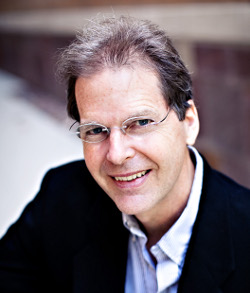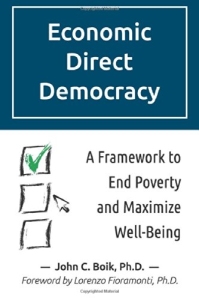
Communities worldwide want economies that are stronger, greener, fairer, more resilient, more democratic, and more diverse. Jobs must be created, climate change addressed, infrastructure repaired, schools upgraded, and more. The LEDDA economic direct democracy framework, now under development, offers a bold yet practical solution.
The LEDDA framework provides greater organization to a local economy, one hard-wired for cooperation and steeped in democratic decision-making processes. A complete description is given in the book Economic Direct Democracy: A Framework to End Poverty and Maximize Well-Being.

Roughly speaking, the LEDDA framework “pays” people to participate. Family incomes for members rise, and income inequality shrinks. Jobs are created, and funds generated for schools, nonprofits, and public service agencies. Ample financial resources are available to address climate change, infrastructure decay, access to health care, and other social, environmental, and economic problems. The framework is designed to help cities, counties, and local regions lead the way in meeting their challenges, and in transforming local economies into ones that are vibrant, sustainable, resilient, and fair.
The framework synthesizes multiple approaches that are currently in use in cities and regions around the world into a coherent, consistent, integrated whole. It builds on ideas from buy-local, invest-local, local-currency, local-food, local-sharing, open-source, open-government, open-data, participatory democracy, and related sustainable development, knowledge transfer, social change, and decision-making initiatives. An integrated approach can allow rapid progress with relative ease: in the United States and many other countries, no legislative action is required to implement the framework.
A simulation model of a county-level LEDDA economy has been submitted for publication. Results are discussed on this website and in the book.



